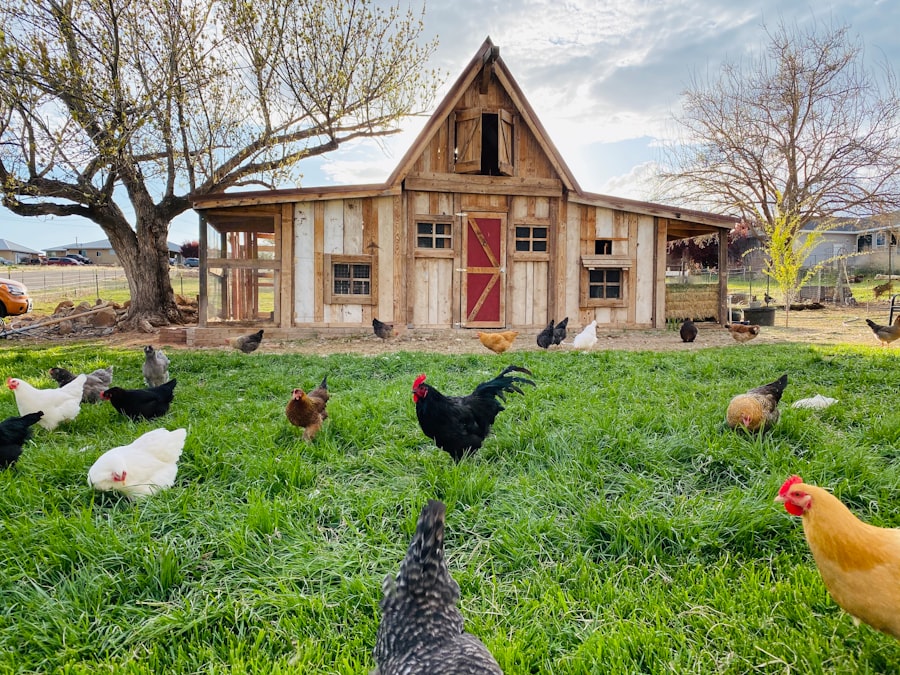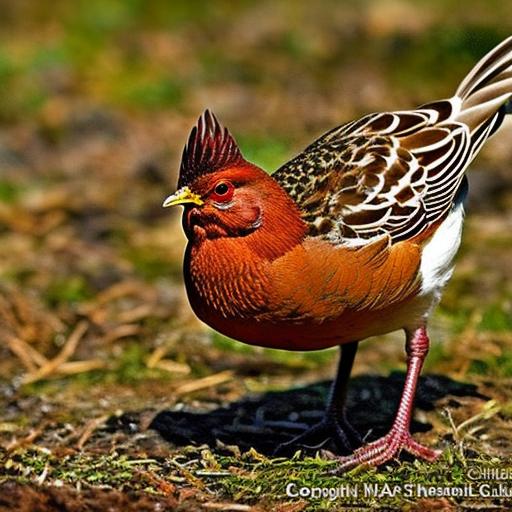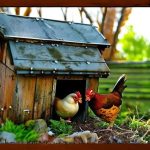Raising chickens has become increasingly popular in recent years, as more people are drawn to the idea of having fresh eggs and living a sustainable lifestyle. However, it’s important to consider the downsides before diving into chicken ownership. While there are certainly many benefits to keeping chickens, there are also some potential drawbacks that should not be overlooked.
Key Takeaways
- Raising chickens can pose health risks to humans.
- Maintaining a chicken coop requires a lot of work.
- Chickens can be noisy and disturb neighbors.
- The smell of chicken coops can be unpleasant.
- Chickens can be destructive to gardens and attract pests and predators.
Health Risks Associated with Chickens
One of the main concerns when it comes to raising chickens is the potential health risks they can pose. Chickens can carry diseases like salmonella, which can be harmful to humans. Salmonella is a bacteria that can cause food poisoning, leading to symptoms such as diarrhea, fever, and abdominal cramps. It’s important to practice good hygiene and take precautions when handling chickens, such as washing your hands thoroughly after touching them or their eggs.
Chicken Coop Maintenance is a Chore
Keeping a clean and well-maintained chicken coop is essential for the health of your birds. However, this can be a time-consuming and unpleasant task. Chicken droppings need to be regularly cleaned out to prevent the buildup of ammonia and other harmful substances. Additionally, the coop itself needs to be cleaned and disinfected periodically to prevent the spread of diseases. This maintenance can be physically demanding and may not be suitable for everyone.
Chickens are Noisy and Can Disturb Neighbors
Another potential downside of raising chickens is the noise they can create. Roosters, in particular, are known for their loud crowing, which can be disruptive to both you and your neighbors. Before keeping chickens, it’s important to consider your neighbors and any local ordinances that may restrict or regulate chicken ownership. Some areas have specific rules regarding noise levels or even prohibit roosters altogether.
The Smell of Chicken Coops Can be Unpleasant
Chicken manure has a strong odor that can be unpleasant for nearby residents. If the coop is not properly ventilated or cleaned regularly, the smell can become overwhelming. This can be a significant concern if you live in close proximity to other houses or have neighbors who are sensitive to odors. Proper ventilation and regular cleaning can help mitigate this issue, but it’s important to be aware of the potential smell before deciding to keep chickens.
Chickens Can be Destructive to Gardens

Chickens have a natural instinct to scratch and peck at the ground, which can be destructive to gardens and landscaping. They can uproot plants, damage flower beds, and create unsightly holes in the ground. If you have a well-maintained garden or landscaping that you want to preserve, it’s important to provide a designated area for your chickens to roam and forage. This can help protect your plants while still allowing your chickens to engage in their natural behaviors.
Chicken Coops Attract Pests and Predators
chicken coops can attract pests and predators, which can pose a threat to both your chickens and your property. Chicken feed and waste can attract rodents like rats and mice, which can cause damage and spread diseases. Additionally, predators like raccoons, foxes, and even neighborhood dogs may be attracted to your chicken coop, putting your birds at risk. It’s important to take precautions to secure your coop and regularly inspect it for any signs of pests or predators.
Chickens Can be Expensive to Keep
While raising chickens can be a cost-effective way to have fresh eggs, there are still expenses involved. The initial cost of setting up a chicken coop and purchasing birds can be significant. You will need to invest in materials for the coop, such as fencing, nesting boxes, and roosting bars. Additionally, ongoing expenses like feed, bedding, and veterinary care can add up over time. It’s important to budget for these costs and be prepared for the financial commitment that comes with keeping chickens.
Chickens Can Carry Diseases that are Harmful to Humans
In addition to salmonella, chickens can carry other diseases that can be harmful to humans. One example is avian influenza, also known as bird flu. This is a highly contagious viral disease that can cause severe illness and even death in humans. It’s important to be aware of the risks and take appropriate precautions when handling chickens or their eggs. This includes practicing good hygiene, avoiding contact with sick birds, and properly cooking eggs before consuming them.
Weighing the Pros and Cons of Keeping Chickens
While there are certainly downsides to raising chickens, there are also many benefits to consider. Fresh eggs are one of the main attractions, as they are often considered superior in taste and quality compared to store-bought eggs. Additionally, raising chickens can provide a sense of self-sufficiency and a connection to nature. Many people find joy in caring for their birds and watching them grow and thrive.
However, it’s important to carefully consider the pros and cons before deciding if keeping chickens is right for you. The potential health risks, maintenance requirements, noise, smell, potential damage to gardens, attraction of pests and predators, and the financial commitment should all be taken into account. It may be helpful to speak with experienced chicken owners or do further research to fully understand what it takes to raise chickens responsibly.
In conclusion, while raising chickens can be a rewarding experience, it’s important to be aware of the potential downsides. By weighing the pros and cons and taking appropriate precautions, you can make an informed decision about whether or not keeping chickens is the right choice for you and your lifestyle.
If you’re considering keeping chickens, it’s important to be aware of both the benefits and drawbacks. While there are numerous advantages to having your own flock, it’s essential to understand the potential challenges as well. One article that sheds light on some of the downsides of keeping chickens is “The Dark Side of Chicken Keeping: Common Problems and How to Overcome Them.” This informative piece discusses issues such as predators, disease, and the need for proper coop maintenance. To learn more about these challenges and how to address them, check out the article here.
FAQs
What are some of the bad things about keeping chickens?
There are several potential downsides to keeping chickens, including noise, mess, and the risk of disease transmission.
Do chickens make a lot of noise?
Yes, chickens can be quite noisy, especially roosters. They may crow loudly early in the morning or throughout the day, which can be disruptive to neighbors.
Do chickens create a lot of mess?
Chickens can create a significant amount of waste, including droppings and feathers. This can lead to unpleasant odors and unsanitary conditions if not properly managed.
Can keeping chickens be a health risk?
Yes, there is a risk of disease transmission when keeping chickens. Salmonella is a common bacteria found in chicken feces that can cause illness in humans. Proper hygiene and sanitation practices can help reduce this risk.
Do chickens attract pests?
Yes, chickens can attract pests such as rodents and flies. This can be a problem if not properly managed, as these pests can carry disease and cause damage to property.
Is it expensive to keep chickens?
The cost of keeping chickens can vary depending on factors such as the size of the flock and the type of housing and feed used. However, there are ongoing expenses such as feed, bedding, and veterinary care that should be considered.
Meet Walter, the feathered-friend fanatic of Florida! Nestled in the sunshine state, Walter struts through life with his feathered companions, clucking his way to happiness. With a coop that’s fancier than a five-star hotel, he’s the Don Juan of the chicken world. When he’s not teaching his hens to do the cha-cha, you’ll find him in a heated debate with his prized rooster, Sir Clucks-a-Lot. Walter’s poultry passion is no yolk; he’s the sunny-side-up guy you never knew you needed in your flock of friends!







